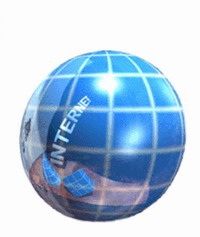BBN Technologies Inc to redesign network
A government contractor playing a key role in the Internet's birth will redesign the network from scratch.

The National Science Foundation announced Monday that BBN Technologies Inc. will get up to $10 million (7.5 million EUR) over four years to oversee the planning and design of the Global Environment for Network Innovations, or GENI.
Many researchers want to rethink the Internet's underlying architecture, saying a "clean-slate" approach is the only way to truly address security, mobility and other challenges that have cropped up since the Internet's birth in 1969.
The NSF already has been funding several projects at universities and elsewhere through Future Internet Network Design, or FIND. It has been pushing to build GENI as a testbed for researchers to explore clean-slate ideas without damaging the current Internet.
Much of the work on GENI so far has been conducted by professors and other researchers. Naming BBN brings a full-time staff to the project, said Larry Peterson, chairman of computer science at Princeton University and head of the GENI planning group.
"They have a track record in large government projects of this sort, and they are very much committed to working with the research community to build the experimental facility we want and need," Peterson said of BBN.
In the late 1960s, BBN won the contract to build a network linking machines at four universities. That network, then known as ARPAnet, grew to include the millions that form the Internet today.
BBN also played an important role in early e-mail technology, and one of its scientists, Ray Tomlinson, was the designator of the "at" symbol now part of e-mail addresses.
Construction on GENI could start about 2010 and cost $350 million (260 million EUR).
A new Internet could ultimately mean replacing networking equipment and rewriting software on computers, at a cost of billions of dollars. But any new network is likely to run parallel with the existing one for some time, with individuals and businesses gradually migrating over as they need more advanced applications.
Clean-slate advocates say the current piecemeal effort to address security and other problems only creates inefficiencies and opens the network to more risk.
Subscribe to Pravda.Ru Telegram channel, Facebook, RSS!


